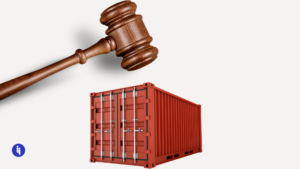Plus: New faces at the UN
|
Today’s briefing: |
Sponsored by: |
Good morning Intriguer. One of my favourite things about South Korea is how bold, assertive, and cheeky its citizens are when it comes to political engagement.
Take for example last December’s protests to oust ex-President Yoon. Some Koreans protested under banners sporting messages from their so-called ‘political’ parties (e.g. the “Angry Cat Owners League”, “National Princess Association”, and “Pizza Toppings Research Group”), simply to register their opposition to Yoon’s martial law declaration.
As we’ll see in today’s story, the recently elected South Korean president will have to contend with this spirit as he steps into his new role. I’m bracing for the political lols ahead.

2.9%
The OECD’s new forecast for global growth this year, down from 3.1%. The revision comes amid trade concerns and an uncertain economic outlook.
South Korean election

It's been a tumultuous six months for South Korea.
One failed martial law declaration, one impeachment, and three acting presidents later, and South Koreans finally have a permanent president again.
Opposition candidate Lee Jae-myung from the left-leaning Democratic Party of Korea won yesterday’s election with 49% of the vote, defeating Kim Moon-soo from the ruling People Power Party.
Before we dive into what a Lee Jae-myung presidency might look like, here’s a quick reminder of why you should care about what goes down in South Korea:
-
It's a major semiconductor exporter, thanks to Samsung and SK Hynix
-
It hosts Camp Humphreys, the US’s largest overseas military base
-
Its soft power has grown thanks to the international success of its beauty, entertainment, and music industries (Gangnam Style is still a banger and we’ll hear no dissent on that)
-
It has close defence ties with the US and strong economic ties with China making it somewhat of a global canary in the geopolitical coalmine
-
Oh, and it's still technically at war with its nuclear-armed neighbour to the north.
Back to the new South Korean president.
Lee comes from a humble background, forgoing secondary school (which at the time was not free in South Korea) to work in a factory to supplement his family's income. Despite this, Lee managed to enroll in law school and open his own legal practice, before entering politics around 2005. He lost the last presidential election in 2022 by just 0.73% making it the closest race in South Korean history.
To round out his biography, last year he was the victim of an assassination attempt for which he underwent emergency surgery.
But this is International Intrigue not Vanity Fair, so let’s get to Lee’s foreign policy…
🇰🇵 On North Korea
While former President Yoon Suk Yeol (2022-2025) took a more adversarial line against North Korea, Lee wants to restart dialogue with Pyongyang. As a former governor of a border province, he's seen firsthand that "sabre rattling achieves little" when it comes to denuclearisation.
Nor does Lee share the ideological goal of reunification of former President Moon Jae-in (2017-2022). Instead, he sees North Korea as a problem to manage rather than a destiny to fulfil.
🇨🇳 On China
The new president has pledged to reset ties with China (South Korea's biggest trading partner) but he’s toned down some of his more overtly friendly rhetoric in recent weeks to appeal to Korea's centrist voters.
Lee has criticised his predecessor Yoon's approach to China and his US tilt, arguing there is "no need to unnecessarily antagonise" Beijing.
When asked if he would come to Taiwan's aid in case of a Chinese invasion, Lee gave one of the odder answers we’ve ever heard: "I will think about that answer when aliens are about to invade the earth."
Was that Lee’s peculiar way of dodging the question or an indication of a smaller, more contained foreign policy? Perhaps Lee had just seen the 1996 classic Independence Day and couldn’t resist – either way it’s probably best not to read too much into it.
🇺🇸 On the US
Lee's more moderate stance towards China shouldn't be taken as a shift away from Washington.
Firstly, Lee’s been outspoken in backing the US-South Korea security alliance, calling it "essential". Secondly, he's opposed to the development of nuclear weapons on South Korean soil and supports the country's reliance on the US nuclear umbrella. However, he argues, "we should not put all our eggs in one basket".
It looks like Lee will end Yoon's 'strategic clarity' and return South Korea to the 'strategic ambiguity' of the past. That’ll probably irritate the Trump administration, which just last week prodded its Asian allies to increase their defence budgets to confront what it described as an "imminent" threat from China.
The newly-elected president has also pledged to kick off trade talks with the Trump administration to deliver tariff relief for his country, telling a radio interview he would "crawl under [Trump's] legs if necessary" to secure a deal.
Whatever else is true, South Korea’s new president certainly has a way with words.
Intrigue’s Take
While Western media often refers to Lee as an "outspoken liberal", we're getting big centrist dad vibes from Lee.
He supports a universal basic income but is a strong defender of free trade. He understands South Korea needs a constructive relationship with China, but knows that the US is South Korea’s most important ally. He just seems like a guy who wants to chart a middle course and honestly, we're here for that.
So what could force Lee to pick a side?
-
President Trump's tariffs have already lowered South Korean public opinion of the US by between 7-10% according to nationwide polls. If that continues, Lee would be in a difficult spot and any… err… sucking up to Trump wouldn't go down well domestically. China will be watching for any opportunity to drive them further apart.
-
On the other hand, if China did attack Taiwan, or more plausibly, get into a military confrontation with a South Korean vessel, Lee would almost certainly have to denounce China and risk a dangerous escalation sequence.
And all that's before we remember that politics in South Korea is a blood sport. Lee has his fair share of legal troubles and corruption allegations stemming from his time as a mayor and governor, so there's an outside bet to be made that he might not even finish his term.
For now, South Koreans will be just be hoping yesterday’s election puts an end to the political chaos.
Sound even smarter:
-
Lee's Democratic Party is in control of the National Assembly, giving the new president strong political support for his agenda.
-
South Korean presidents called the historic "Blue House" home from 1948 until 2022, when former president Yoon moved the offices to central Seoul. Built on the site of a royal palace dating back to 1395, the Blue House served as the presidential residence for over 70 years. It's unclear whether Lee will stick with Yoon's new digs or return to tradition.
Today’s newsletter is sponsored by Incogni
Keep Your Private Data Off The Dark Web
Scam calls, texts, and emails are getting smarter—and your personal data fuels them. Data brokers sell your phone number, DOB, and SSN daily to the highest bidder. Even with a sharp eye, it’s hard to stay safe when so much of your life is online. That’s where Incogni helps. It scrubs your personal data from the web, confronting data brokers on your behalf—even the tough ones like people search sites. Protect your privacy with Incogni and take back control today.
Meanwhile, elsewhere…

 |
🇺🇸 UNITED STATES — Trump raises steel, aluminium tariffs to 50%. Comment: The announcement is bound to raise tensions at a time when the US is locked in trade negotiations with several countries, including the EU. Meanwhile, the UK, which announced a trade deal with the US last month, will be exempt from the hike, with British metal imports facing the original 25% levy. |
 |
🇮🇷 IRAN — Supreme Leader criticises US proposal for nuclear deal. Comment: It might sound like bad news, but we read Khamenei’s somewhat measured criticism (by Iranian Ayatollah standards anyway) as saying uranium enrichment is a red line, but Tehran still wants to negotiate. Iran needs sanctions relief to boost its struggling economy. |
 |
🇲🇳 MONGOLIA – PM forced out over son’s behaviour. Comment: Poland, the Netherlands, and now Mongolia — governments are falling apart due to internal political divisions. Are we seeing an early backlash against the ‘anti-incumbency’ elections of 2024, or is volatility just the new political norm everywhere? |
 |
🇺🇦 UKRAINE – Nuclear plant in no condition to operate. |
 |
🇵🇭 PHILIPPINES – Air Asia grounded by government. |
 |
🇬🇹 GUATEMALA – Colombian officials wanted for corruption. Comment: But that’s not all! The prosecutor bringing these charges has been sanctioned by the US and other countries for… you guessed it… interfering in corruption investigations. |
 |
🇿🇦 SOUTH AFRICA — Zuma's corruption trial lives on. |
Extra Intrigue
Intrigue Job Board 💼
-
Head of Communications @ Belgium Embassy in DC
-
HR Coordinator @ Doctors Without Borders in Brussels
-
Senior Manager, Climate & Migration @ C40 Cities in Brazil, South Africa or the UK
-
Analyst, Global Intelligence @ Royal Caribbean Group in Miami
New faces at the UN

Credits: Taggesshau
There’s never a dull day at the UN in New York (said someone who’s never been a junior diplomat on the Fifth Committee).
Annalena Baerbock—Germany’s former foreign minister—was elected as the president of the 80th General Assembly, which will open in September. At 44 years old, she becomes one of the youngest UNGA presidents ever.
Baerbock’s ascent wasn’t drama‑free: Berlin insiders say she out-manoeuvred high-ranking German diplomat Helga Schmid for the job after it became clear the Greens (Baerbock’s party) would exit the governing coalition. Still, many in New York hope her solid record as foreign minister can jolt the UN into action.
Meanwhile, Bahrain, Colombia, the Democratic Republic of the Congo, Latvia, and Liberia were elected yesterday (Tuesday) as non-permanent members of the UN Security Council, with two-year terms beginning in January 2026.
Today’s poll
Do you think South Korea should develop its own nuclear weapons |
Yesterday’s poll: What technology changed warfare forever?
💥 Gun powder (41%)
🔫 Machine guns (3%)
💻 Radar technology (5%)
🏹 Drones (17%)
💣 Canons (2%)
☢️ Nuclear (28%)
✍️ Other (Write in!) (4%)
Your two cents:
-
💥 B.D: “Traditional weapons required years of training to be effective in combat. On the other hand, guns required significantly less training, giving the common man the ability to fight and defend himself with lethal force.”
-
☢️ J.O: “Nukes haven’t so much changed how wars are fought but what wars are fought, which is arguably more impactful.”
-
🏹 E.T: “Drones will revolutionize small armies against larger foes.”
-
✍️ M.M: “Flight in general (rather than just drones), it opened an entire new war fighting domain and space is not far behind…”






